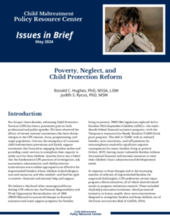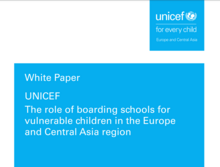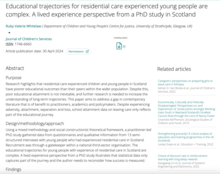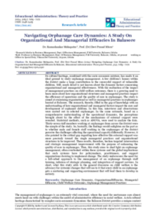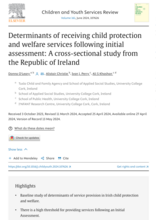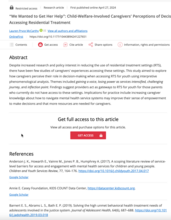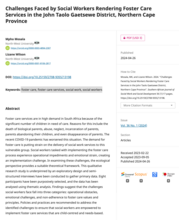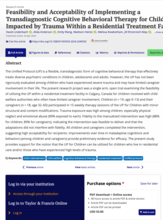Displaying 151 - 160 of 10391
The webinar took place on 30 April 2024 and focused on Chapter IV of the Guidelines: Deinstitutionalization grounded in the dignity and diversity of persons with disabilities, and how they relate to children and other children and other at-risk populations, such as elders and women.
This interim report based in Australia focuses on hearing the lived experiences of children and young people in alternative care arrangements and lifts up the voices of those who have participated in private hearings as part of this Special Inquiry to date.
The purpose of this document is to explore why and how Child Protective Services (CPS) evolved from a highly specialized system designed to investigate and respond to allegations of serious child abuse and neglect to a system expected to provide social services and material supports to impoverished families unable to meet their children’s basic needs.
This UNICEF paper summarises evidence on the current use and impact of boarding schools in the Europe and Central Asia (ECA) region and draws on wider international evidence. It proposes a typology of boarding schools and considers the drivers for their use, as well as the concerns and challenges related to that use for vulnerable children.
Research highlights that residential care experienced children and young people in Scotland have poorer educational outcomes than their peers within the wider population. Despite experiencing adversity, attachment, separation and loss, school attainment data on leaving care only reflects part of the educational journey. This paper aims to address a gap in contemporary literature that is of benefit to practitioners, academics and policymakers.
The study is aimed at examining organizational as well as managerial practices in orphanages located at Balasore, India to understand how these factors impact the care and development of orphaned children.
This study examines the factors which drive the decision to provide child protection and welfare services in Ireland using social work case files and multivariable analysis.
This U.S.-based study aimed to explore how caregivers perceive their role in decision-making when accessing residential treatment settings (RTS) for youth using interpretive phenomenological analysis.
This is a qualitative research study to gather primary data to examine the high demand for foster care services in South Africa and the impact on the country's social work services.
This research project was an open trial examining the feasibility of utilizing the Unified Protocol (UP) -- a form of cognitive behavioral therapy -- within a residential treatment facility in Calgary, Canada for children involved with child welfare authorities who often have limited caregiver involvement.


